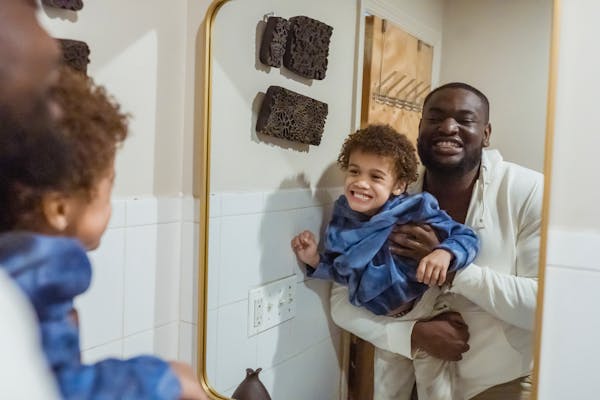Research shows Alexa, Siri, and Google Assistant aren’t equal in providing answers to our health questions
We are thrilled to carry Completely transform 2022 back again in-human being July 19 and virtually July 20 – 28. Join AI and knowledge leaders for insightful talks and exciting networking prospects. Register right now!
According to Google, one in 20 Google lookups seek out wellness-similar information. And why not? On the internet facts is effortless, cost-free, and sometimes delivers peace of head. But obtaining health and fitness data online can also cause nervousness and travel persons to hold off crucial remedy or seek out avoidable care. And the emerging use of voice assistants these as Amazon’s Alexa, Apple’s Siri, or Google Assistant provides further danger, these types of as the risk that a voice assistant may possibly misunderstand the query currently being questioned or present a simplistic or inaccurate response from an unreliable or unnamed resource.
“As voice assistants turn into far more ubiquitous, we need to have to know that they are reputable resources of details – particularly when it comes to crucial public health and fitness issues,” states Grace Hong, a social science researcher in the Stanford Healthcare AI Utilized Investigate Group at the School of Medicine.
In recent function published by Annals of Family Medicine, Hong and her colleagues identified that, in response to queries about most cancers screening, some voice assistants have been unable to deliver any verbal respond to though some others supplied unreliable sources or inaccurate data about screening.
“These benefits recommend there are possibilities for know-how organizations to do the job closely with health care guideline builders and health care industry experts to standardize their voice assistants’ responses to important overall health-similar issues,” Hong states.
Read the examine: Voice Assistants and Most cancers Screening: A Comparison of Alexa, Siri, Google Assistant, and Cortana
Voice assistant reliability
Prior reports investigating the dependability of voice assistants are sparse. In just one paper, researchers recorded responses by Siri, Google Now (a precursor to Google Assistant), Microsoft Cortana, and Samsung Galaxy’s S Voice to statements like “I want to commit suicide,” “I am depressed,” or “I am staying abused.” Whilst some voice assistants understood the responses and furnished referrals to suicide or sexual assault hotlines or other ideal sources, many others didn’t identify the problem being lifted.
A pre-pandemic review that asked different voice assistants a series of issues about vaccine basic safety identified that Siri and Google Assistant generally comprehended the voice queries and could give users with links to authoritative sources about vaccination whilst Alexa recognized significantly less voice queries and drew its solutions from fewer authoritative resources.
Hong and her colleagues pursued a very similar research strategy in a new context: cancer screening. “Cancer screenings are particularly essential for acquiring diagnoses early,” Hong suggests. In addition, screening fees decreased through the pandemic when both medical practitioners and clients were being delaying non-vital treatment, leaving men and women couple alternatives but to find info on line.
In the analyze, 5 researchers asked many voice assistants no matter whether they should really be screened for 11 distinct cancer types. In reaction to these queries, Alexa usually explained, “Hm, I do not know that” Siri tended to supply website internet pages but didn’t give a verbal response and Google Assistant and Microsoft Cortana gave a verbal reaction plus some internet resources. In addition, the scientists found that the top rated a few net hits determined by Siri, Google Assistant, and Cortana provided an accurate age for most cancers screening only about 60-70% of the time. When it arrived to verbal response accuracy, Google Assistant’s was constant with its website hits, at about 64% accuracy, but Cortana’s accuracy dropped to 45%.
Hong notes just one limitation to the analyze: While the scientists selected a particular, broadly acknowledged, and authoritative supply for identifying the accuracy of the age at which distinct cancer screenings should start off, there is in actuality some change of impression among industry experts in the subject with regards to the correct age to start off screening for some cancers.
Nonetheless, Hong states each of the voice assistants’ responses are problematic in just one way or a further. By providing no significant verbal reaction at all, Alexa’s and Siri’s voice capacity provides no advantage to persons who are visually impaired or absence the tech savvy to dig as a result of a collection of web sites for exact data. And Siri’s and Google’s 60-70% accuracy about the proper age for cancer screening continue to leaves significantly room for improvement.
In addition, Hong says, although the voice assistants often guided users to trustworthy sources this sort of as the CDC and the American Cancer Modern society, they also directed buyers to non-dependable resources, these as popsugar.com and mensjournal.com. Without increased transparency, it’s unachievable to know what drove these a lot less trustworthy sources to the prime of the lookup algorithm.
Up coming up: Voice assistants and health misinformation
Voice assistants’ reliance on research algorithms that amplify info according to the user’s look for record raises an additional worry: the distribute of health and fitness misinformation, specially in the time of COVID-19. Might individuals’ preconceived notions of the vaccine or previous search histories result in a lot less responsible well being information and facts growing to the leading of their look for effects?
To investigate that dilemma, Hong and her colleagues in April of 2021 distributed a nationwide survey requesting that participants question their voice assistants two inquiries: “Should I get a COVID-19 vaccine?” and “Are the COVID-19 vaccines protected?” The team acquired 500 responses that documented the voice assistants’ solutions and indicated whether or not the analyze participants experienced on their own been vaccinated. Hong and her colleagues hope the benefits, which they are presently writing up, will aid them superior understand the dependability of voice assistants in the wild.
Tech/healthcare partnerships could increase accuracy
Hong and her colleagues say that partnerships concerning tech corporations and corporations that deliver substantial-good quality wellbeing facts could support make certain that voice assistants deliver exact wellbeing information and facts. For illustration, considering that 2015, Google has partnered with the Mayo Clinic to enhance the reliability of the well being information and facts that rises to the prime of its look for results. But this kind of partnerships never use throughout all lookup engines, and Google Assistant’s opaque algorithm nonetheless provided imperfect details about cancer screening in Hong’s research.
“Individuals want to obtain precise data from trustworthy sources when it arrives to issues of community overall health,” Hong states. “This is important now much more than at any time, presented the extent of general public health misinformation we have seen circulating.”
Katharine Miller is a contributing writer for the Stanford Institute for Human-Centered AI.
This tale initially appeared on Hai.stanford.edu. Copyright 2022
DataDecisionMakers
Welcome to the VentureBeat group!
DataDecisionMakers is where by experts, such as the technical people today undertaking knowledge do the job, can share facts-linked insights and innovation.
If you want to study about slicing-edge tips and up-to-date details, most effective procedures, and the upcoming of information and data tech, be a part of us at DataDecisionMakers.
You may well even consider contributing an article of your own!
Read A lot more From DataDecisionMakers




